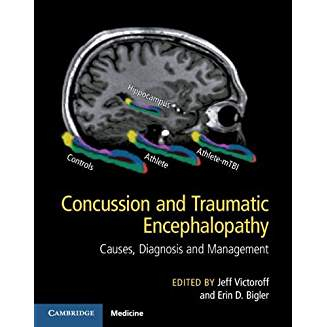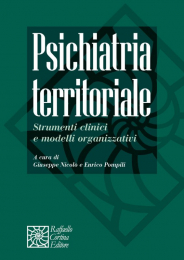Non ci sono recensioni
DA SCONTARE
Concussion and Traumatic Encephalopathy is a ground breaking text that offers neurologists, neuropsychologists, psychologists, and physiatrists the first comprehensive reconceptualization of concussive brain injury in 100 years. During the twentieth century, progress in understanding concussion was hamstrung by resistance to the observation that many survivors suffer long-term sequelae, and by the lack of advanced neuroimaging technologies. As a result, the potentially immense impact of concussion on global health was largely overlooked. The last decade has witnessed a dramatic renaissance in concussion science. We are just beginning to fathom the implications for society. Informed by twenty-first century advances, this new text updates the definition, epidemiology, pathophysiology, late effects, and promising therapies for concussion. Multiple experts have collaborated to summarize the latest scientific evidence in an engaging way and provide the reader with the first paradigm shifting textbook of this new era.
- Provides the first evidence-based reconceptualization of concussion in a century
- Comprehensively updates the neurobiology, epidemiology, pathophysiology, and management of concussive brain injury
- Clarifies the reasons for and risks of late effects after one or more concussive brain injuries
- Explores the underestimated impact of concussion on human society
Part I. What Is a Concussion?:
1. What is a concussive brain injury? Jeff Victoroff and Erin D. Bigler
2. Epidemiology of concussive brain injury Jeff Victoroff
3. The pathophysiology of concussive brain injury Stefano Signoretti, Barbara Tavazzi, Giuseppe Lazzarino and Roberto Vagnozzi
4. What happens to concussed animals? Jeff Victoroff
5. What happens to concussed humans? Jeff Victoroff
6. Neuroimaging biomarkers for the neuropsychological investigation of concussive brain injury (CBI) outcome Jeff Victoroff and Erin D. Bigler
Part II. Outcomes after Concussion:
7. Why outcomes vary Jeff Victoroff
8. Emotional disturbances following traumatic brain injury Ricardo E. Jorge and Helen Lee Lin
9. Concussion and the twenty-first century renaissance of neuropsychology Jeff Victoroff and Erin D. Bigler
10. Persistent post-concussive psychiatric problems Jeff Victoroff
11. Late effects Jeff Victoroff
12. Functional neuroimaging markers of persistent post-concussive brain change Brian Johnson, Erin D. Bigler and Semyon Slobounov
13. Polypathology and dementia after brain trauma. Does brain injury trigger distinct neurodegenerative diseases, or should they be classified together as traumatic encephalopathy? Patricia M. Washington, Sonia Villapol and Mark P. Burns
14. Traumatic encephalopathy. Review and provisional research diagnostic criteria Jeff Victoroff
Part III. Diagnosis and Management of Concussion:
15. The great CT debate Jeff Victoroff
16. Structural neuroimaging of persistent or progressive traumatic encephalopathy Katherine H. Taber and Robin A. Hurley
17. Biomarkers for concussion. The need and the prospects for the near future Henrik Zetterberg and Kaj Blennow
18. Pediatric concussion. Understanding, assessment, and management, with special attention to sports-related brain injury Adam Darby, Jeff Victoroff and Christopher C. Giza
19. Contribution of objective tests to the diagnosis of sport-related concussion Elizabeth Teel and Kevin Guskiewicz
20. Deployment stress and mild traumatic brain injury. Diagnostic challenges in polytrauma care Colleen E. Jackson, Rebecca L. Wilken and Jennifer J. Vasterling
21. How should one measure 'outcome' of concussion? An introduction to the common data elements for mild TBI and concussion Elisabeth A. Wilde and Ashley L. Ware
22. Functional neuroimaging of concussion Andrew R. Mayer and Patrick S. F. Bellgowan
23. Civilian post-concussive headache Nathan D. Zasler, Michael F. Martelli and Barry D. Jordan
24. Fatigue after concussion. Epidemiology, causal factors, assessment, and management Benton Giap and Jeffrey Englander
25. Sleep disorders after concussive brain injury. Classification, diagnosis, and management Curtis McKnight and Jeff Victoroff
26. Neuroendocrine dysfunction following concussion. A missed opportunity for enhancing recovery? Nigel Glynn and Amar Agha
27. Evidence based rehabilitation in mild traumatic brain injury. Results of a systematic review Jon Pertab
28. A modest plea Jeff Victoroff and Erin D. Bigler.




